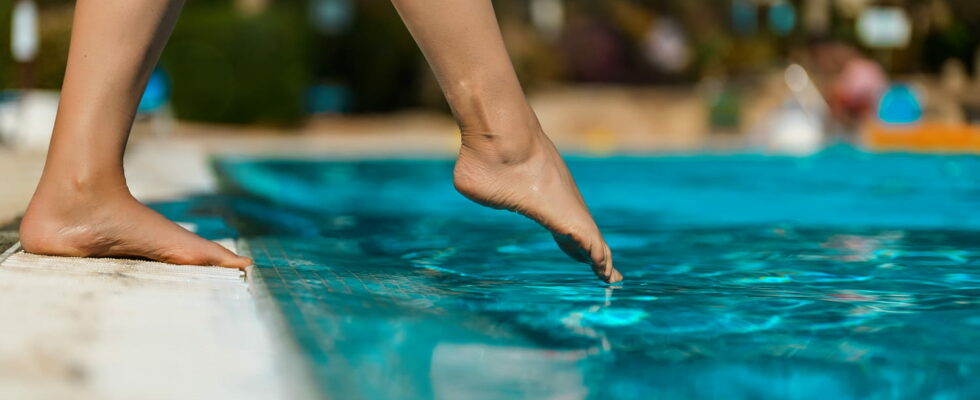Here’s how to protect your skin from irritation according to our dermatologist.
In summer, it is not only the salt in sea water that can cause skin reactions. Chlorine in swimming pools, used for its antibacterial properties, can also cause irritation. The normal recommended dose of chlorine is 0.3 mg/m³, this amount can already cause irritation.The reaction is not directly related to the product but to the interaction between chlorine and organic matter substances such as sweat, skin scales, saliva and urine”explains Dr. Louis Zylberberg, dermatologist at the American Hospital of Paris. This interaction forms chloramines, which in turn cause irritation of the mucous membranes and skin:
► On the skin, irritations are mainly responsible for dryness and itching.
► In the eyes, chloramines can cause stinging,
► At the level of the nasal mucous membranes, sneezing
► At the level of the respiratory mucous membranes, cough and sometimes breathing difficulties
Some people are more sensitive to chloramines such as:
► Those prone to bronchial hypersensitivity who will more easily have asthma attacks
► Those with fragile, atopic skin (prone to eczema) and other dermatoses
“We can avoid these inconveniences”
“In the vast majority of cases, with preventive reflexes we can avoid these inconveniences”reassures the dermatologist. To prevent irritation, the specialist advises systematically taking a shower before and after swimming and moisturizing with a cream after washing. Going into the shower before entering the pool helps prevent organic matter from spreading into the water. It is also ideal to wear diving goggles in the water to protect your eyes. “In case of an acute problem, such as an asthma attack, severe rhinitis or severe skin irritation, you can consult a specialist.” adds our interlocutor. For example, it is possible to be prescribed a barrier cream to apply before swimming.
Apart from irritation caused by chlorine, there are risks associated with swimming pool accidents in private homes. “These accidents are the result of mixtures of chlorinated products and acidic products resulting in the formation of a very toxic substance called “bichloride”” warns the dermatologist. It is a very corrosive gas: bathers may experience nausea, vomiting and breathing difficulties. Read the instructions carefully and strictly follow the dosages.
